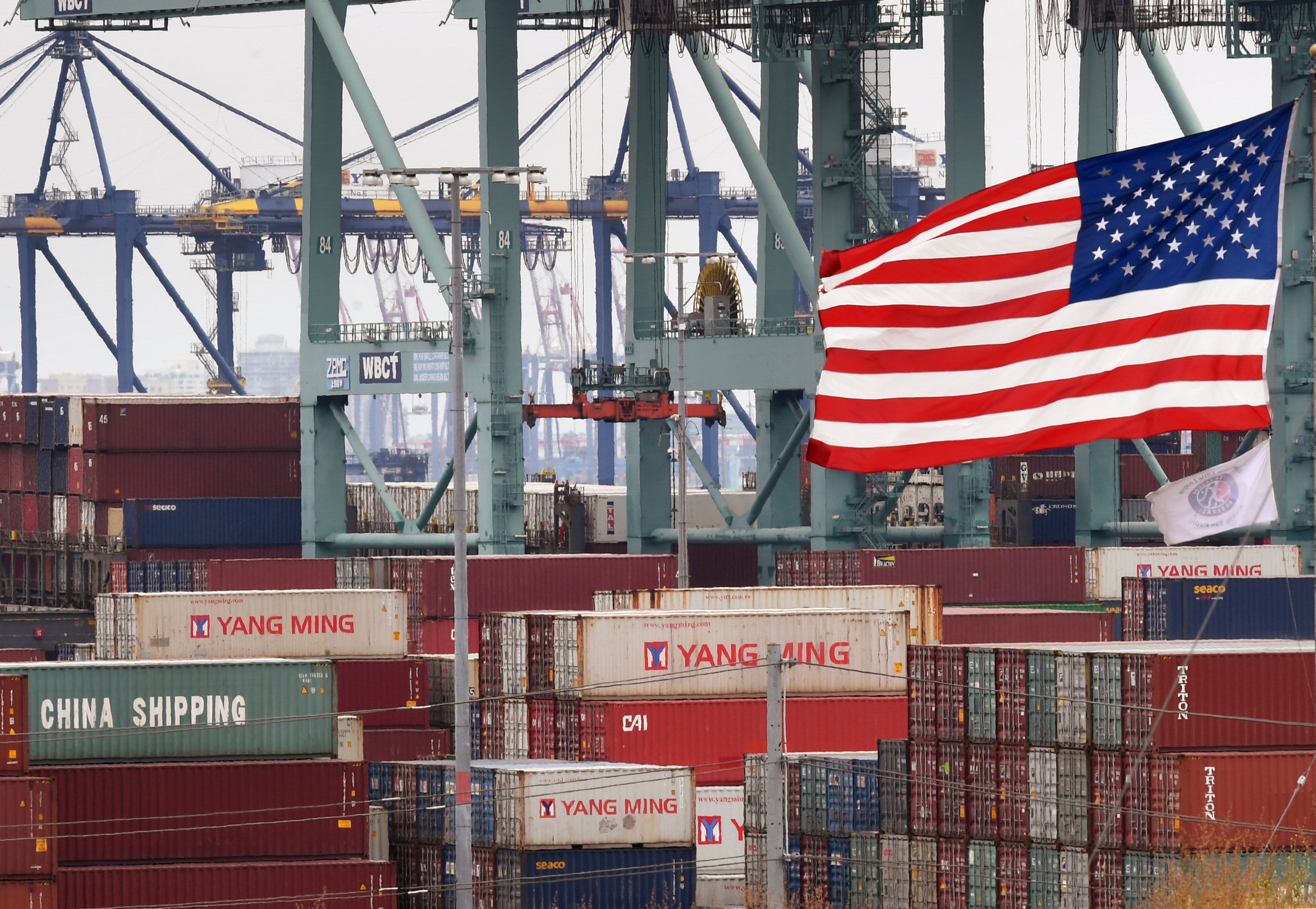
Companies have come under pressure to act on gun violence after recent mass shootings, including two at Walmart stores. (Mario Tama/Getty Images/Bloomberg News)
The chief executives of 145 U.S. companies pressed Senate leaders to expand background checks to all firearms sales and implement stronger “red flag” laws, marking the latest push by corporate America to pressure Congress to take meaningful action on gun violence.
Signatories to a letter sent Thursday include the heads of major retailers, tech firms, financial institutions, including Levi Strauss, Twitter, Uber, Dick’s Sporting Goods, Yelp, Bain Capital and Reddit. The letter pointed to mass shootings in recent weeks — including those in El Paso; Dayton, Ohio; and Gilroy, Calif. — but also called out a broader epidemic of gun violence that kills 100 Americans each day and wounds hundreds more.
[‘We’ve got to protect ourselves’: Some threaten to shop elsewhere if they can’t openly carry guns]
“As leaders of some of America’s most respected companies and those with significant business interests in the United States, we are writing to you because we have a responsibility and obligation to stand up for the safety of our employees, customers and all Americans in the communities we serve across the country,” the executives wrote.
“Doing nothing about America’s gun violence crisis is simply unacceptable and it is time to stand with the American public on gun safety,” they continued.
Corporate America has increasingly weighed in on — or been forced to reckon with — pressing social and political issues facing the country and the world, including immigration and abortion. On gun violence, companies including retailers and banks have considered whether to overhaul their policies or distance themselves from the vast firearm industry — or not. Gun sellers have come under acute pressure to limit the sales of firearms, especially since 24 people were killed at two separate shootings in Walmart stores in the past two months.
A recent Washington Post-ABC News poll found that Americans across party and demographic lines overwhelmingly support expanded background checks for gun buyers and allowing law enforcement to temporarily seize weapons from troubled individuals. The poll found that 86 percent of Americans support implementing “red flag” provisions allowing guns to be taken from people judged to be a danger to themselves or others. And 89 percent support expanding federal background checks to cover private sales and gun-show transactions.
Specifically, Thursday’s letter urged the Senate to pass a bill requiring background checks on all gun sales plus a strong red-flag law that would allow courts to issue lifesaving extreme-risk protection orders. The House has passed gun-control bills, but they have stalled in the Senate.
“Since Congress established the background check system 25 years ago, background checks have blocked more than 3.5 million gun sales to prohibited purchasers like convicted felons and domestic abusers,” the letter states.
But in the subsequent decades, the background check law “has not been updated to reflect how guns are bought and sold today,” the company executives wrote. They said the Senate should follow actions taken by the House to pass bipartisan legislation to update the background checks law, “helping to keep guns out of the hands of people who shouldn’t have them.”
[Dick’s Sporting Goods overhauled its gun policies after Parkland. The CEO didn’t stop there.]
The leaders also wrote that expanding red-flag laws would “enable families and law enforcement nationwide to intervene when someone is at serious risk of hurting themselves or others.”
Walmart, the largest employer in the country, did not sign Thursday’s letter. But last week, the company wrote a separate letter to Congress urging for a debate over reauthorizing an assault weapons ban. Walmart also announced it would stop selling ammunition for military-style weapons and no longer allow customers to openly carry firearms in stores. Other retailers also changed their open-carry policies, including Kroger, CVS and Walgreens.
https://www.washingtonpost.com/business/2019/09/12/ceos-implore-senate-act-gun-violence-saying-doing-nothing-is-simply-unacceptable/
2019-09-12 11:21:51Z
52780381311800





